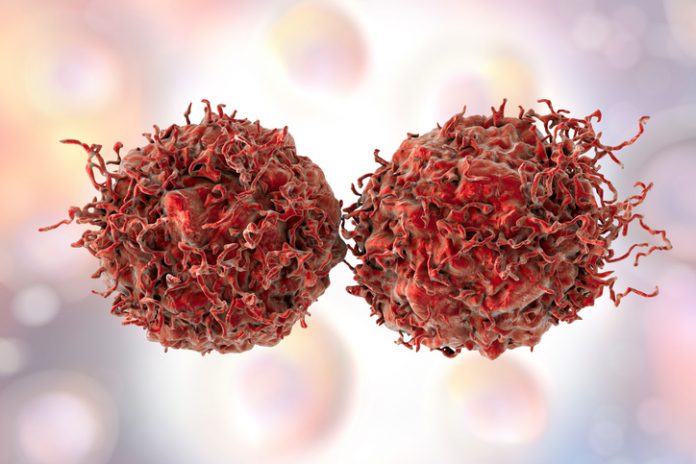
Scientists at Sylvester Comprehensive Cancer Center at the University of Miami Miller School of Medicine, have developed a first-of-its-kind, orally administered drug that can disrupt prostate cancer cell metabolism while simultaneously delivering the chemotherapy drug cisplatin directly into treatment-resistant prostate cancer cells.
Cisplatin, a well established chemotherapy drug on the market, works by forming covalent bonds with the DNA strands in cancer cells. This binding interferes with the cell’s ability to replicate and ultimately inhibits its growth. While being widely recognized for its potency and effectiveness against various forms of cancer, prostate cancer cells are notoriously resistant to the drug.
Reporting in ACS Central Science, researchers have now developed a compound called Platin-L, designed to avoid the prostate cancer cells’ resistance mechanisms. On one hand, Platin-L targets a process called fatty acid oxidation, used by prostate cancer cells to generate energy for growth. By targeting a key protein in the process known as CPT1A, the cell’s metabolism is disrupted, preventing proliferation.
“We know that when this compound binds to CPT1A, it inhibits fat metabolism and is eventually transported to the mitochondria, where it damages mitochondrial DNA and helps overcome resistance. We are also making prostate cancer cells choose a less favorable metabolic pathway, which is insufficient to their needs, making it difficult for them to survive,” said Shanta Dhar, PhD, director of technology and innovation at Sylvester Comprehensive Cancer Center and senior author of the study.
Apart from disrupting prostate cancer cell metabolism, Platin-L also delivers cisplatin directly to its target. This is made possible by encapsulating the compound in nanoparticles targeting a protein called prostate-specific membrane antigen (PSMA), that is highly expressed on prostate tumors. According to the researchers, the nanoparticle design allows the drug to be administered orally and limits side effects in other parts of the body.
“We made a dual-targeted nanoparticle,” Dhar said. “The first targeting is needed to get it through the gut barrier, and the second targeting takes it to the prostate. The beauty is, now we can deliver a cisplatin-based chemotherapeutic orally, which is usually never done. And by targeting the prostate, we can reduce kidney and liver toxicity and the risk of peripheral neuropathy.”
The researchers validated their targets in human prostate cancer biopsies and tested the compound in human cancer cells as well as mouse models of prostate cancer. According to the scientists, in the mouse models, tumors treated with Platin-L shrank compared to those treated with placebo drugs or cisplatin alone.
Apart from a decrease in tumor size, the mice also remained at a steady body weight and showed increased survival rates. The scientists believe that their nanoparticle technique could also be used in other cancers and feel that their work is promising for future clinical trials and development.
“The impact of this current targeted metabolic modulation of the tumor microenvironment for advanced prostate cancer extends beyond this cancer type,” the authors concluded in their paper. “The reported mechanistic investigations will allow us to find the clues to make this platform more general to be used for cancers where these cellular pathways can be altered.”













